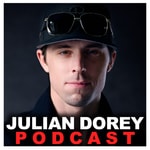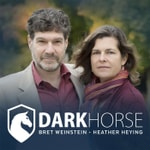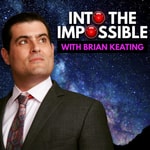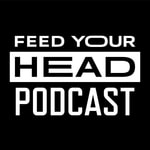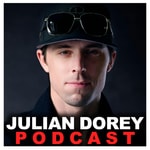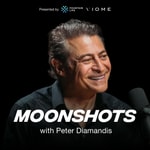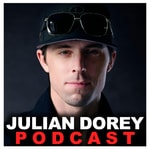The Origins Podcast with Lawrence Krauss – Details, episodes & analysis
Podcast details
Technical and general information from the podcast's RSS feed.
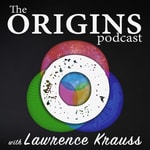
The Origins Podcast with Lawrence Krauss
Lawrence M. Krauss
Frequency: 1 episode/17d. Total Eps: 135

lawrencekrauss.substack.com
Recent rankings
Latest chart positions across Apple Podcasts and Spotify rankings.
Apple Podcasts
🇨🇦 Canada - physics
13/08/2025#2🇨🇦 Canada - science
13/08/2025#32🇬🇧 Great Britain - physics
13/08/2025#4🇬🇧 Great Britain - science
13/08/2025#78🇩🇪 Germany - physics
13/08/2025#6🇺🇸 USA - physics
13/08/2025#3🇺🇸 USA - science
13/08/2025#91🇫🇷 France - physics
13/08/2025#12🇨🇦 Canada - physics
12/08/2025#2🇨🇦 Canada - science
12/08/2025#35
Spotify
No recent rankings available
Shared links between episodes and podcasts
Links found in episode descriptions and other podcasts that share them.
See all- https://apple.co/39UaHlB
95 shares
RSS feed quality and score
Technical evaluation of the podcast's RSS feed quality and structure.
See allScore global : 53%
Publication history
Monthly episode publishing history over the past years.
Solving one of cosmology's biggest conundrums with Wendy Freedman
mercredi 21 août 2024 • Duration 01:57:02
Wendy Freedman, the former director of the Carnegie Observatories and now distinguished professor at University of Chicago, has been a leading figure in observational cosmology and astronomy for over 30 years. I have known her as a friend and colleague, and have learned much from her over the years, and was very excited to be able to snag her amidst her busy schedule to record a podcast a week or two before the release of a new blockbuster result her team had produced. I am very happy that Critical Mass listeners will be among the first to get the detailed lowdown on the likely resolution of a problem that has been plaguing cosmology for the past decade.
In the 1990’s Wendy led a major international team of astronomers in carrying the Hubble Space Telescope Key Project. The Hubble Space Telescope (HST) was named in part because of this project, to establish the distance scale of the universe and measure its current expansion rate, a quantity not coincidentally called the Hubble Constant, first measured by Edwin Hubble in 1929.
Since that time, different groups have measured this most important single observable in our universe and gotten widely different values. In the 1980’s and early 90’s two different groups got values that differed by a factor of 2, even though each claimed errors of less than 10%. In 2001, Freedman’s team published their result, truly accurate to 10%, and the value, perhaps not surprisingly, fell right in the middle between the previous two discrepant values.
All was good, until inferences based on the Cosmic Microwave Background, the most precise observable in modern cosmology suggested that measurements at a time when the universe was 300,000 years old, when extrapolated forward using the best current theory of cosmology today, would give a value that different from the HST value.
The difference was statistically significant, and as time proceeded, and error bars got smaller, the discrepancy between the HST (and then the James Web Space Telescope (JWST)) measurement, and the CMB measurement got more significant. Was our current model of cosmology simply wrong?
Such was the claim in various places over the past few years. Most recently, Wendy led a team to measure cosmic distances in 3 different ways using JWST, and as she describes in our discussion, it looks like the problem may now be solved, although not without leaving other mysteries.
We talked about a lot more than this though. Wendy’s background, what got her into astronomy, her experiences throughout her career, and her leadership in a new project building the Giant Magellan Telescope, what will be the largest telescope in the world in Chile.
The discussion was as fun as it was exciting. Wendy is a wonderful popular expositor, and as always, I really enjoyed talking to her. Tune in to hear, for the first time, about the newest and most important recent result in cosmology from one of my favorite colleagues and a world class scientist.
As always, an ad-free video version of this podcast is also available to paid Critical Mass subscribers. Your subscriptions support the non-profit Origins Project Foundation, which produces the podcast. The audio version is available free on the Critical Mass site and on all podcast sites, and the video version will also be available on the Origins Project YouTube.
Get full access to Critical Mass at lawrencekrauss.substack.com/subscribe
Leonard Susskind: Strings, Quarks, Black Holes, and More.
mercredi 7 août 2024 • Duration 01:55:04
I was very happy to finally have the opportunity to have an extended conversation for our podcast with renowned theoretical physicist Lenny Susskind. Lenny has been a friend and colleague for many years. I remember first attending a lecture he gave at a conference when I was an undergraduate and recognizing what a powerful intellect he was, and also how he combined mathematical sophistication within an intuitive framework that reminded me a bit of Richard Feynman. Years later, when I went jogging with him along a beach in California, I also discovered that, he strove for excellence in everything he did, and it nearly killed me to keep up with him.
Lenny has been involved over the past 50 years in many of the forefront developments in particle physics, including string theory, the standard model, the matter-antimatter symmetry of the universe, and the mysteries of black hole physics and quantum gravity, to name just a few. It was enlightening to explore his own intellectual development, and also his perspectives on how these major developments in physics fit into our evolving understanding of the universe.
Lenny is also an accomplished popularizer of science, something he turned to somewhat late in his career, and I learned something fascinating about what caused him to turn to writing. It was entirely unexpected. I am glad he was motivated, because his semi-popular books following The Theoretical Minimum, covering the essential ideas necessary for someone to have a grasp of modern theoretical physics, are, in my opinion classics.
Anyone who is interested in understanding how we got to where we are today, and what the key outstanding questions in theoretical physics are, and where the likely answers may be found, will find our discussion enlightening, and, fascinating. I hope you enjoy this in depth discussion with one of the most accomplished theorists around today, and one of the most enjoyable and thought provoking scientists one might hope to have a conversation with.
As always, an ad-free video version of this podcast is also available to paid Critical Mass subscribers. Your subscriptions support the non-profit Origins Project Foundation, which produces the podcast. The audio version is available free on the Critical Mass site and on all podcast sites, and the video version will also be available on the Origins Project YouTube.
Get full access to Critical Mass at lawrencekrauss.substack.com/subscribe
A Conversation with Irwin Shapiro: Scientist Extraordinaire from the Earth to the Stars, and at 94, still going strong.
samedi 16 mars 2024 • Duration 01:57:27
Irwin Shapiro is a remarkable human being by almost any standard. Following his education in physics at Cornell and Harvard, he had a job at MIT’s Lincoln Laboratory working on various problems in planetary dynamics, and radar ranging, when he went to a lecture and realized that a completely new phenomenon could occur in General Relativity that no one had proposed in the half-century since Einstein first proposed it. For objects traveling near a massive object like the Sun, the travel time to go from one point to another would be slightly longer than it would be if one simply divided the distance traveled by the speed of light. One might think this is simply due to the fact that light takes a curved trajectory near a massive object, rather than traveling in a straight line. But as Shapiro showed, there is an additional time delay, due to the fact that clocks tick somewhat slower in a gravitational field than they would otherwise.
This effect, now known as the Shapiro Effect has become known as the 4th test of General Relativity, a test the theory passed when Shapiro and collaborators used the Haystack Observatory to carefully measure reception times for radar signal that passed near the sun.
Irwin went from that triumph to Chair the Department of Earth and Planetary Sciences at MIT, and from there to Harvard to lead the Harvard Smithsonian Observatory. He remains at Harvard, where at 94 years old, as Timkin University Professor, he still teachers classes, is doing research in biology, and plays tennis several times a week!
Besides all of this, Irwin is one of the most lovely and gentle scientists I have known in my career, which continued after my stint at Harvard largely because of encouragement he gave to me at a very difficult time for me. As a result, it was a pure delight to reconnect with him after many years, and have a conversation about his long career, the evolution of science in the 60 odd years that he has been doing it, and about life in general. I hope you enjoy it, and find it as intellectually and emotionally stimulating as I did.
As always, an ad-free video version of this podcast is also available to paid Critical Mass subscribers. Your subscriptions support the non-profit Origins Project Foundation, which produces the podcast. The audio version is available free on the Critical Mass site and on all podcast sites, and the video version will also be available on the Origins Project Youtube channel as well.
Get full access to Critical Mass at lawrencekrauss.substack.com/subscribe
A Dialogue with Label-Defying Journalist Jonathan Kay
vendredi 16 février 2024 • Duration 02:49:06
I first became aware of Jonathan Kay through his writing for the online magazine, Quillette. And for full disclosure, I got to know him better because he is one of their editors, and he has edited several of my own pieces for that magazine. Before that, however, I had been a fan of his writing, and was happy to be able to have an extended conversation with him about writing, journalism, false news, and politics, to name a few of the topics we discussed.
Our dialogue occurred shortly after the appearance of a comprehensive 15,000 word piece of investigative journalism piece by Kay about a supposed organized sex-ring in the Psychology Department at McMaster University in Canada. Outrageous claims had surfaced, which ignited the university, and the local media, destroying the careers of various faculty and others, all of which eventually turned out to be false. Kay carefully explored how the original story developed, what factors prompted the University to act, and how local media played up the salacious claims without much investigation. It was a typical example of how false news can propagate, and also an indictment of the way Universities handle such claims, and local media may promote them.
The appearance of this story gave us the opportunity to talk about the state of journalism in general. Jonathan has had a unique career and background, which made him a particularly interesting dialogue partner about this issue. He actually was educated as a metallurgical engineer, and following that he pursued a law degree at Yale University, and was a tax lawyer before eventually becoming disenchanted and deciding to pursue a career in writing and journalism.
He also defies easy labelling. While he was a founding editor of the conservative Canadian newspaper The National Post, he also helped Liberal Prime Minister Justin Trudeau write his memoirs. It is Jonathan’s non-ideological bent, perhaps due to his early training as a scientist and engineer that makes his perspective on today’s news so refreshing. We discussed his own background, what got him into writing, his experiences, and stories including the recent claimed Indigenous Residential School scandal in Canada, and the controversy surrounding the naming of the James Webb Space Telescope in the U.S.
When I contacted Jon this week to let him know the podcast is coming out, I learned that he had just completed a lengthy investigative piece about University of New Hampshire astrophysicist/gender studies social justice warrior Chanda Prescod Weinstein who, in the process of claiming victimization for herself and others, has apparently been bullying, harassing, and intimidating a host of others online, leading to complaints recently being filed at her institution. It coincidentally just came out yesterday, so this podcast is particularly timely. I hope you enjoy the discussion as much as I enjoyed talking to this fascinating man.
As always, an ad-free video version of this podcast is also available to paid Critical Mass subscribers. Your subscriptions support the non-profit Origins Project Foundation, which produces the podcast. The audio version is available free on the Critical Mass site and on all podcast sites, and the video version will also be available on the Origins Project Youtube channel as well.
Get full access to Critical Mass at lawrencekrauss.substack.com/subscribe
A dialogue with Brian Keating, at the San Diego Air and Space Museum
vendredi 2 février 2024 • Duration 01:22:09
In mid October the Origins Project Foundation ran two public events in California. The second event was held at the Air and Space Museum in San Diego. I had asked my colleague Brian Keating, who teaches at UCSD and is a Trustee of that museum, whether he might be interested in doing a public dialogue together that we could later both broadcast on our respective podcasts. He and I have each appeared before on each other’s podcasts, and I knew that we could have the kind of comfortable, informative, and fun conversation that might appeal to a live audience, which would make for a different kind of podcast.
I am happy to present here the video record of that live-audience podcast, and the Q&A with the audience that was recorded right after it. Brian and I discussed many things, from forefront cosmology, to the nature of teaching and doing research, as viewed by an experimentalist and a theorist respectively, as well as broader questions associated with science in society today. The questions afterwards were equally interesting. I hope you enjoy both as you listen to or watch the podcast.
As always, an ad-free video version of this podcast is also available to paid Critical Mass subscribers. Your subscriptions support the non-profit Origins Project Foundation, which produces the podcast. The audio version is available free on the Critical Mass site and on all podcast sites, and the video version will also be available on the Origins Project Youtube channel as well.
Get full access to Critical Mass at lawrencekrauss.substack.com/subscribe
Greg Lukianoff: : The Canceling of the American Mind. Free Speech and Academia
mercredi 27 décembre 2023 • Duration 01:57:47
Greg Lukianoff is a First Amendment lawyer by training. During his education he began to see how, even among organizations ostensibly created to help protect free speech, how actual free speech was improperly being conflated with harassment or bullying. When he went to work as a legal director of the nascent Foundation for Individual Rights in Education in around 2000, he quickly discovered that in academia, the one place where free speech and open inquiry should be valued above all else, actual free speech was under attack. In the intervening two decades, during which he rose to become director of that Foundation, now renamed to encompass the fact that the attacks on free speech that began in academia have proliferated throughout our society, he has actively worked to fight these attacks. Beyond his legal work, he has become a prolific writer. His 2018 book, co-written with Jonathan Haidt, entitled The Coddling of the American Mind, was influential in encouraging debate and discussion regarding the origins of the victimization mentality that was becoming prevalent in Western Society.
I have been admirer of Greg’s for some time, and have wanted to have a dialogue with him on the podcast. This year, with Rikki Schlott, Greg published The Canelling of the American Mind: How Cancel Culture Undermines Trust, Destroys Institutions and Threatens us All, and it provided us the ideal opportunity to get together to discuss both his own personal experiences , and also the general concerns we both have about the issues that form the heart of the new book.
What followed was a fascinating conversation about issues we should all care about. Regular readers of Critical Mass and listeners to The Origins Podcast will be aware of some of the examples and concerns we discussed, but I expect will nevertheless be surprised by the ubiquitous infiltration of cancel culture ideas into our society. We actually begin by defining Cancel Culture, a term that has often been misused and misunderstood in the popular media, and then discuss a variety of examples, before closing with a brief discussion of the ways that we can possibly combat it to produce a more tolerant, democratic society, and to save higher education as well. I hope you are provoked, enlightened, and energized by the conversation.
As always, an ad-free video version of this podcast is also available to paid Critical Mass subscribers. Your subscriptions support the non-profit Origins Project Foundation, which produces the podcast. The audio version is available free on the Critical Mass site and on all podcast sites, and the video version will also be available on the Origins Project Youtube channel as well.
Get full access to Critical Mass at lawrencekrauss.substack.com/subscribe
Scott Aaronson: From Quantum Computing to AI Safety
vendredi 15 décembre 2023 • Duration 03:02:28
Scott Aaronson is one of the deepest mathematical intellects I have known since, say Ed Witten—the only physicist to have won the prestigious Fields Medal in Mathematics. While Ed is a string theorist, Scott decided to devote his mathematical efforts to the field of computer science, and as a theoretical computer scientist has played a major role in the development of algorithms that have pushed forward the field of quantum computing, and helped address several thorny issues that hamper our ability to create practical quantum computers.
In addition to his research, Scott has, for a number of years, written a wonderful blog about issues in computing, in particular with regard to quantum computing. It is a great place to get educated about many of these issues.
Most recently, Scott has spent the last year at OpenAI thinking about the difficult issue of AI safety, and how to ensure that as AI systems improve that they will not have an unduly negative or dangerous impact on human civilization. As I mention in the podcast I am less worried than some people, and I think so is Scott, but nevertheless, some careful thinking in advance can avert a great deal of hand wringing in the future. Scott has some very interesting ideas that are worth exploring, and we began to explore them in this podcast.
Our conversation ran the gamut from quantum computing to AI safety and explored some complex ideas in computer science in the process, in particular the notion of computational complexity, which is important in understanding all of these issues. I hope you will find Scott’s remarks as illuminating and informative as I did.
As always, an ad-free video version of this podcast is also available to paid Critical Mass subscribers. Your subscriptions support the non-profit Origins Project Foundation, which produces the podcast. The audio version is available free on the Critical Mass site and on all podcast sites, and the video version will also be available on the Origins Project Youtube channel as well.
Get full access to Critical Mass at lawrencekrauss.substack.com/subscribe
Dialogues with Richard Dawkins
jeudi 30 novembre 2023 • Duration 01:19:59
Richard Dawkins and I have appeared together onstage many times, been the subject of the documentary The Unbelievers, and have collaborated on various writing projects as well. Thus it may come as a surprise to you to learn that each time we get together, we find new things to discuss and learn from each other. It surprises us as well.
This fall we agreed to appear onstage together at two separate events co-sponsored by The Origins Project. The events, entitled Changing Minds in Changing Times were coordinated by Atheist UK and were in London and Birmingham. In both events I gave short presentations, and at the end of the event Richard and I appeared together onstage for a dialogue. At the first event I was able to discuss with Richard his latest book, Books do Furnish a Life, and at the second event, for the first time, Richard interviewed me, for his new podcast, The Poetry of Reality.
We have combined these two dialogues here into a single podcast. Together they cover a broad collection of subjects, from science, to science communication, and finally to the threats to free inquiry now occurring in higher education.
As always, I find it an absolute pleasure to spend time conversing with Richard. He is charming, eloquent, and insightful. I hope you enjoy these newest discussions as much as I did.
As always, an ad-free video version of this podcast is also available to paid Critical Mass subscribers. Your subscriptions support the non-profit Origins Project Foundation, which produces the podcast. The audio version is available free on the Critical Mass site and on all podcast sites, and the video version will also be available on the Origins Project Youtube channel as well.
Get full access to Critical Mass at lawrencekrauss.substack.com/subscribe
Carlo Rovelli: From Dante to White Holes
vendredi 3 novembre 2023 • Duration 02:24:16
Carlo Rovelli is well known as a popularizer of science. His short book, Seven Brief Lessons on Physics, was an international bestseller. I have known Carlo as a physicist ever since he used to visit my Physics Department colleague, Lee Smolin, at Yale, when I was a Professor there. Carlo and Lee were part of a small group of physicists pioneering an idea called ‘Loop Quantum Gravity’ as a way to try and unify General Relativity and Quantum Mechanics. Less well known among the public than its chief competitor, String Theory, and also less popular among physicists as a whole, Loop Quantum Gravity is nevertheless an equally serious attempt to address the vexing paradoxes associated with of quantizing General Relativity.
Black Holes are the place in physics where the various problems of quantum gravity become manifest. If Stephen Hawking was correct, and black holes do completely evaporate through quantum processes that result in the emission of thermal radiation, then it appears that the information about what fell into the black hole in the first place will be forever lost. But this violates a central feature of quantum mechanics, which preserves information. At the same time, the final state of classical black hole collapse involves a singularity of infinite density. Most physicists expect this singularity to be removed in a quantum theory of black holes.
Rovelli argues that near the singularity of a black hole quantum processes can change a black hole to be a ‘white hole’, the time reversed version of a black hole. While anything that falls into a black hole stays there, everything inside a white hole eventually reappears. If Carlo’s ideas were correct, they could go a long way toward potentially resolving black hole paradoxes.
It is a big ‘If” however, and I remain skeptical. Nevertheless I wanted to discuss these ideas with Carlo on this podcast for a variety of reasons. First, any such discussion will illuminate a lot about the physics of black holes. Secondly, I think it is useful for laypeople to listen to physicists debate and discuss ideas at the forefront, presenting challenges to each other, being willing to openly question, and doing all of this with a sense of mutual respect.
At the same time, because I share Carlo’s great interest in both popularizing science, as well as connecting science and culture, I was extremely interested in discussing his motivations and thoughts about these important areas, and I was not disappointed. I hope listeners will find our discussions about science, literature, and politics equally enlightening.
As always, an ad-free video version of this podcast is also available to paid Critical Mass subscribers. Your subscriptions support the non-profit Origins Project Foundation, which produces the podcast. The audio version is available free on the Critical Mass site and on all podcast sites, and the video version will also be available on the Origins Project Youtube channel as well.
Get full access to Critical Mass at lawrencekrauss.substack.com/subscribe
Robert Sapolsky: The Illusion of Free Will
mercredi 18 octobre 2023 • Duration 02:58:34
I have been a fan of Robert Sapolsky’s for a long time. He is a creative force, with wide ranging knowledge, from primatology to neuroscience, and he is also a wonderful expositor of science. His previous book, Behave, was a wide ranging exploration of human behavior, at its best and worst. I have been wanting to do a podcast with him for some time, and the launch of his new book, Determined, gave us the opportunity. I got an advanced copy and we recorded this a few weeks ago, so that this podcast could post on the book’s publication date.
Had it been anyone else, I admit I wouldn’t have bothered to go through the book. I have long felt the issue of free will is overplayed. The laws of physics are deterministic, and since biology and chemistry are based on physics, I have never doubted that free will is an illusion, but have also felt that for all intents and purposes the world we live in is indistinguishable from a world with free will, so we should take responsibility for our actions.
As is often the case when reading Robert’s works, my view has now become more nuanced. His book masterfully discusses the neurobiology behind the illusion of free will, what actually interests me the most, and he effectively demolished claims of numerous philosophers, including Dan Dennett and others, that some magic occurs between the level of neurons and the level of the full brain that allows for some uncaused behavior.
Along the way, we are taken on a masterful and fun ride through modern neurobiology. And at the end, Sapolsky confronts the more serious question of crime and punishment in a world where free will is an illusion, and convincingly argues that in a world where bad luck early on gets multiplied throughout ones life, society can far more effectively and honestly deal with crime by abolishing the notion of punishment, replacing it with behaviorally more effective methods.
In our podcast, as we always do, we discussed Sapolsky’s origins. What got him interested in science. How did his 30 years working with primates impact on his view of humans, and more. I found it a fascinating discussion, and I hope you will too.
As always, an ad-free video version of this podcast is also available to paid Critical Mass subscribers. Your subscriptions support the non-profit Origins Project Foundation, which produces the podcast. The audio version is available free on the Critical Mass site and on all podcast sites, and the video version will also be available on the Origins Project Youtube channel as well.
Get full access to Critical Mass at lawrencekrauss.substack.com/subscribe
